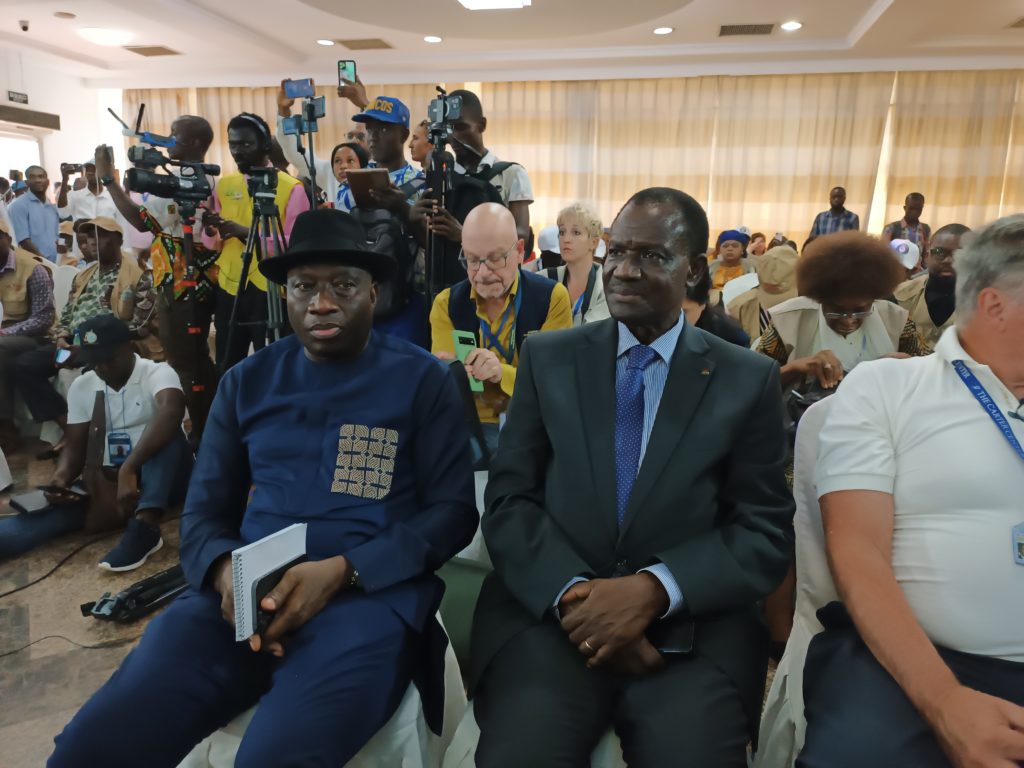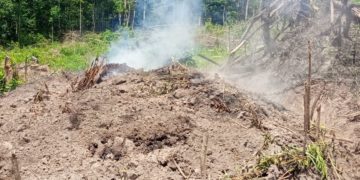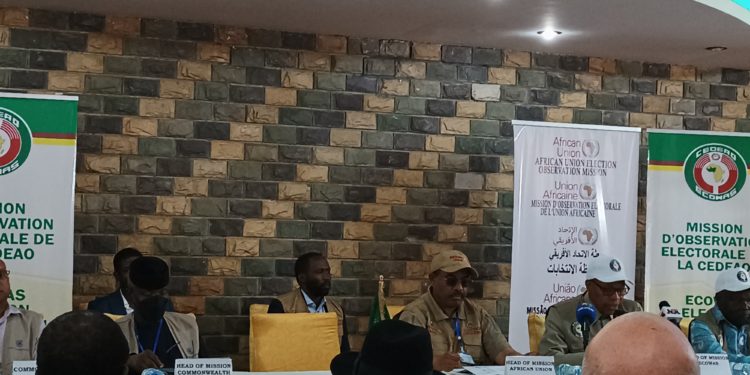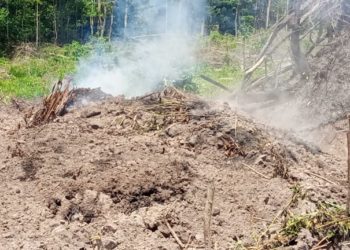The top two regional elections observation missions – the African Union (AU) and the Economic Community of West African States (ECOWAS) – have given a clean bill of health to the conduct of the June 24 general elections in Sierra Leone.
The heads of the missions cleared the process, even though they acknowledged numerous hitches that characterized it, especially on voting day.
Former Ethiopian Prime Minister, Hailemariam Desalegn who heads the AU Mission and Ghanaian diplomat Mohamed Ibn Chambers of the ECOWAS elections observation mission, gave their verdict on the process on Monday, June 26, as contained in the preliminary reports of their respective missions.
The two reports captured several issues that they said marred the process, as echoed by the many other local and international observers, including delay in commencement of voting in many parts of the country, which was caused by the late arrival of ballot materials, sporadic outbreak of violence, and other procedural flaws on the part of staff of the Electoral Commission of Sierra Leone (ECSL).
“Overall, AUEOM observed that elections were conducted in a generally peaceful, transparent and credible manner, up to the counting on polling day, despite reported incidents of violence particularly during the pre-election period,” said Mr Desalegn.
His ECOWAS counterpart, Ibn Chambers, said: “The Mission notes that despite some early challenges, polling generally proceeded smoothly and in a largely peaceful atmosphere, and eligible voters were able to freely participate in the process.”
The two officials spoke to the press, alongside the head of the Commonwealth Observer Group (COG), former Nigerian Vice President Yemi Osinbajo, at the Bintumani Hotel in Freetown.
The reports came about an hour after the ECSL had released partial results in the presidential contest, which places incumbent President Julius Maada Bio of the Sierra Leone People’s Party (SLPP) ahead with 1, 067, 666 votes, representing 55.86 percent of the tallied ballots. Bio’s main challenger, Samura Kamara of the main opposition All People’s Congress (APC), received 793, 751 votes, representing 41.53 percent.
The 11 other candidates were trailing far behind.
Chief Electoral Commissioner Mohamed Konneh said that the results released represented 60 percent of total votes tallied in each of the 16 districts of the country.

Over 3.3 million people registered to vote in the elections described as crucial to cement Sierra Leone’s democracy, the fifth since the country emerged from its civil in 2002 and the third self-administered.
The ECSL had come under pressure to release the results, two days after voting ended in the tense elections that have been characterized by allegations and counter-allegations of rigging and violence.
Mr Konneh said the final results is expected to be announced within the next 48 hours.
The APC had accused the elections body of failing to provide a level playing field to ensure free, fair and credible elections. These concerns grew during counting and tallying, not just from the opposition, but also from some observers.
The APC had said that data available to it indicated that its candidate was on course to victory. But it said that the ECSL created an atmosphere of lack of transparency in the counting centers.
The Commonwealth mission raised this issue in its report, noting that a “lack of clarity around the actual procedure for tallying,” had led to the charges of lack of transparency.
The European Union Elections Observation (EUEOM) Mission was more assertive on this issue as captured in its report, also presented on Monday at a separate event at the Raddison Blu Mammy Yoko Hotel.
Chief EU Elections Observer, Evin Incir, said one of the key issues they observed is lack of transparency and clear communication on the part of the electoral commission, which eroded public trust in the process.
“Several delays and shortcomings at key stages of the electoral process occurred and were not comprehensively explained to the public, reducing confidence in the process,” said Ms Incir.
The EUEOM also cited intimidation of voters and heavy handed response of security forces against opposition supporters. It also noted that the incumbent party had an unfair advantage in its access to state resources used during campaigning, among others.
As Sierra Leoneans await the final announcement expected on Tuesday, concerns have now shifted towards the potential for an escalation of violence, with indications of a possible victory for the incumbent.
Sunday’s violent clashes between security forces and supporters of APC at the party’s headquarters are still fresh in the minds of many. The opposition has said that one of its supporters was killed as a result of a live bullet fired by police. According to reports, the police have denied this.
President Bio issued a short statement after the announcement of the partial results on Monday, calling on Sierra Leoneans to remain calm.
“We each have a stake in maintaining peace during and after the announcement of the results of these elections. Citizens must not incite violence or associate with violent actions,” he said.




















